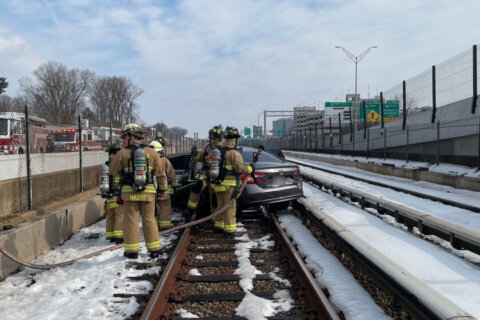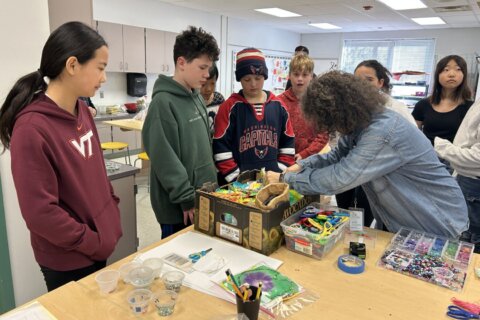With concerns about fentanyl continuing to increase in the D.C. area and around the country, a Fairfax, Virginia, expert is encouraging families to use harm reduction methods when helping someone who has an addiction — instead of cracking down with a heavy-handed approach.
“The best thing that a family member can do is to stay calm and ask open-ended questions,” said Ginny Atwood with the Chris Atwood Foundation, an organization that helps people impacted by substance abuse.
Atwood said families in that situation may want to have fentanyl test strips and the overdose reversal drug Narcan on hand — not to encourage drug use, but to deal with addiction in the safest way possible.
“Harm reduction is critical to make sure that you’re keeping that person safe and alive until you can work with them and hopefully get them into recovery,” Atwood said. “Trying to address that through threats and negative consequences just creates more disconnection and more isolation for the person and it does not help them.”
According to Atwood, families can’t wait until the person hits “rock bottom.”
“Because of the potency of what’s out there, it’s instant death,” Atwood said. “Rock bottom for a lot of people nowadays is death.”
A synthetic opioid that’s considered exponentially more addictive than heroin, fentanyl is now the leading cause of death for Americans ages 18 to 49. A tiny amount, 2 milligrams, ingested into the body can be fatal.
It costs less than a penny to buy the chemicals needed to make a lethal dose of fentanyl, making its potential availability “virtually limitless,” she said.
The drug is often mixed into the supplies of other drugs or pressed into counterfeit prescription pills such as oxycodone. Some people never know they are taking it.
More than 100,000 deaths a year have been linked to drug overdoses since 2020 in the U.S., about two-thirds of those are related to fentanyl. The death toll is more than 10 times as many drug deaths as in 1988, at the height of the crack epidemic.
Atwood’s group is named after Atwood’s younger brother, Chris, who died from an accidental overdose at 21 years old.
The organization, which provides free harm reduction and recovery support services and advocacy, has a public event planned for Oct. 26 called “Heroes for Hope.”
They are hoping to raise money to support their efforts.
“We would love to invite anybody in the community who has been affected by this issue to come out and hang out with us and raise critical funds for the work that we do,” Atwood said.
The Associated Press contributed to this report.








